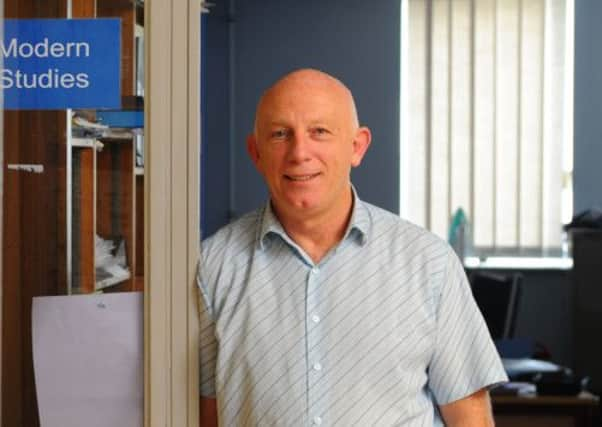Hugh Reilly: ‘Long hours’ on long road to freedom


Yeah, Martin Luther King’s “I have a dream” speech may have helped to secure freedom for black people but education’s slaves are still in chains, according to some teachers. At the crack of dawn (presuming daybreak is 8am or so), classroom labourers rise and wearily make their way to the pupil plantation to begin another day of toil under a blazing fluorescent light tube.
Lawdy, lawdy, much later, the headmassa clangs a bell and the exhausted academic workforce sets off for its suburban quarters, not for rest but to correct the jotters of the little chil’en until the flickering of the almost burnt-out wick renders such heroic endeavours impossible.
Advertisement
Hide AdAdvertisement
Hide AdClaims of a 65, 60 or even a 55-hour week embarrassed me when I was with friends, often causing me to hook my first drive at my 4pm tee-off slot. A colleague once told me, with a straight face, that he found himself making up lessons at midnight – had he been Pinocchio, his nose would have taken out my left eyeball.
It is my belief, shared I have to say by most of my more honest co-workers, that these exaggerated assertions diminish the arguable case that teachers suffer from a heavy workload. Logically, there are only a few possible reasons why some dominies, purportedly, make Ben Hur’s rowing team seem like a bunch of Cambridge-punt slackers. One is pitiful time-management. I’ve listened less than intently to procrastinating pedagogues complaining about workload as they queue to photocopy documents that should be done by a clerical worker. A second reason is a failure to prioritise. Some tasks deserve immediate attention while others can be kicked into the long grass. For example, in most cases, a school’s daily bulletin is something of a time-thief, spewed out by an underactive management team with an overactive desire to embellish its alleged ability. It is an objective fact that so-called “failing schools” publish daily tomes declaring the establishment to be a big success.
Like every workplace, responding to e-mails disrupts one’s routine and adds hours to the working week. I found that by not answering them until the end of the school day, events had frequently overtaken the import of the original cyber message. A further aid to decreasing the flow of vacuous information and unsolicited requests was to reply using capital letters in bold, the occasional exclamation mark adding to the impressive presentation of the communication. Unfailingly, this format advises the sender that his electronic dispatch has not been well received.
Opportunities to reduce interminable staff meetings are limited; there is always at least one garrulous promotion-seeker who will rabbit on. But when a conspiratorial group of classroom teachers stare dead-eyed at the blabbering brown-noser, he generally “gets it” (copyright David Cameron) and hits the mute button. An alternative strategy is to have mobile phones go off when the headteacher is in mid-oration. After one or two Lady Gaga and Lone Ranger ringtone interruptions, the enraged rector inevitably ends the meeting prematurely.
In my experience, when it comes to writing pupil reports, many teachers believe that more is more (and as a rule, it is). As if a symptom of an undiagnosed disorder, some teachers feel compelled to completely fill the boxes with words, no matter the size of the box. To the afflicted, a tiny blank space signifies Sir does not know enough about the pupil. Most were disgusted that I opted to use a larger font size to obviate the need for loquacious comments.
Perhaps the greatest misuse of precious minutes and hours is teachers pretending to be social workers or acting like educational psychologists. Many misguided chalkies invest time in the reckless belief that they can change the behaviour of a child. When challenged to produce evidence that their strategy can bear fruit, they point out that Michelle Pfeiffer transformed the lives of teenage gangsters in the film, Dangerous Minds.
In my opinion, teachers do a wonderful job in very difficult circumstances. I accept that many work more than the contractual limit of 35 hours. However, if a teacher is working 55 hours per week, I fear he is a disorganised individual who should take the freedom road out of the profession.